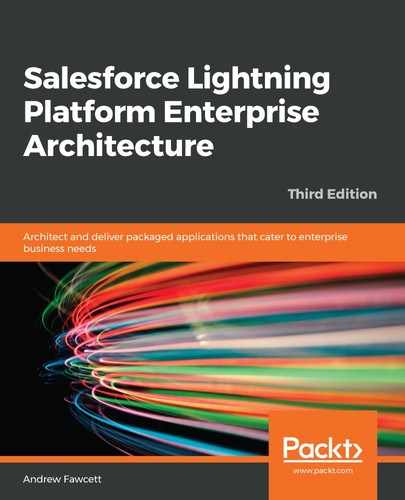Enterprise customers often have legacy and/or external systems that are still being used or that they wish to phase out in the future. As such, they may have requirements to replicate aspects of the data stored in the Salesforce platform to another platform.
The following lists some platform and API facilities that can help you and/or your customers build solutions to replicate data:
- Replication API: This API exists in both the web service SOAP and Apex form. It allows you to develop a scheduled process to query the platform for any new, updated, or deleted records within a given time period for a specific object. The getUpdated and getDeleted API methods return only the IDs of the records, requiring you to use the conventional Salesforce APIs to query the remaining data for the replication. The frequency at which this API is called is important in order to avoid gaps. Refer to the Salesforce documentation for more details.
- Outbound Messaging: This feature offers a more real-time alternative to the replication API. An outbound message event can be configured using the standard workflow feature of the platform. This event, once configured against a given object, provides a Web Service Definition Language (WSDL) file that describes a web service endpoint to be called when records are created and updated. It is the responsibility of a web service developer to create the endpoint based on this definition. Note that there is no provision for deletion with this option.
- Bulk API: This API provides a means to manage up to 5,000 chunks of Salesforce data (up to 10 MB or 10,000 records per chunk) per rolling 24-hour period. Salesforce and third-party data loader tools, including the Salesforce Data Loader tool, offer this as an option. It can also be used to delete records without them going into the recycle bin. This API is ideal for building solutions to archive data.
Heroku Connect is a seamless data replication and synchronization solution between Salesforce and Heroku Postgres. For further information, refer to https://www.heroku.com/connect.
There are, of course, a number of AppExchange solutions listed that provide applications that use these APIs already. Another option for importing data into the Lightning Platform is integration with external data sources. This is described in more detail in the next section.
